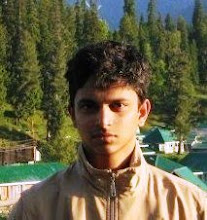With Bangalore band Kryptos heading out for a Europe tour, Indian metal is all set to hit the world stage.
Nigel Britto
Non-metallers who have never ridden the lightning may not have heard of Indian thrash band Kryptos. But come July, the fab four from Bangalore are all set to make their mark when they embark on the first cross-country tour of Europe by any Indian metal band.
This journey started in 1998, when two 18-year-olds - Nolan Lewis (vocals/guitars) and Ganesh K (former bassist), then students at St Joseph's College, Bangalore - decided to transform their obsession with Iron Maiden and Judas Priest into something concrete. With Assamese drummer Ching Len, the threesome played gigs at practically every college in and around the city. This, when there was almost no metal scene in India and no MySpace or Facebook to help bands reach out to the young, who are every rock band's potential audience.
The journey was worth it, says Lewis, Kryptos' founder and frontman. "It's been 12 tough years, but we wouldn't have it any other way," says Lewis, who works as an insurance analyst at a financial company to supplement his income.
Kryptos has been through a number of lineup changes. The most notable one was the addition of Ryan 'Maiden' Colaco in 2002, who is today one of the best metal drummers in the country. The band got more reinforcements in November 2006, when Jayawant Tiwari and Rohit Chaturvedi, formerly of the band Mutiny, joined on bass guitar and lead guitar respectively. In 2007, Kryptos became the first Indian metal band to be signed up with a major international label, Old School Metal Records, based in California.
So far, the band has played around 300 gigs in every corner of the country. Among its foremost achievements is opening for Iron Maiden at the Rock in India fest in Bangalore in 2008. After the gig, Kryptos presented their band Tshirt to Iron Maiden's frontman Bruce Dickinson, who not only reciprocated but also posted a picture of himself wearing a Kryptos shirt on the band's official website the next day.
The four now have big hopes of their Europe tour, where they'll be playing in Pecs in Hungary, followed by Frankfurt, Niederkruchten and Stuttgart in Germany, as well as Pfafficon in Switzerland. Apart from the venue, it's the company they're thrilled about. It's no mean feat to be playing, among others, alongside bands like Brazilian metal band Torture Squad and the uber-crazy Mayhem, easily the world's most outrageous metal band (when the band's former vocalist shot himself in the head, the rest of the band made necklaces with pieces of his skull). And if that's not enough, the band's former guitarist murdered the bassist. The band is (justifiably) banned in certain countries.
Kryptos' music is a juxtaposition of oldschool and the faster, post- '90s thrash metal. "It's a natural progression from the Iron Maiden days," laughs Colaco who doubles up as drum teacher. The band has two full-length albums, Spiral Ascent (2004) and The Ark of Gemini (2008), which are testament to the evolving stature of Indian metal in the world. Both received positive reviews from metal websites around the world, thus getting the band an international fan following most Indian metal bands can only dream of. "We've never compromised on our music to get where we are, and that's something we are damn proud of," beams Lewis. As part of the tour, the band is a special invitee to the Waaken Open Air in Germany, called the Mecca of heavy metal culture by metal historian Sam Dunn. But as optimistic as he normally is, Lewis is practical about the Europe tour. "It's up to us to make things happen." As long as the Icelandic volcano doesn't act up again, Kryptos is sure to show some steel.
This article was first published on The Times of India's Crest edition on June 19, 2010.


